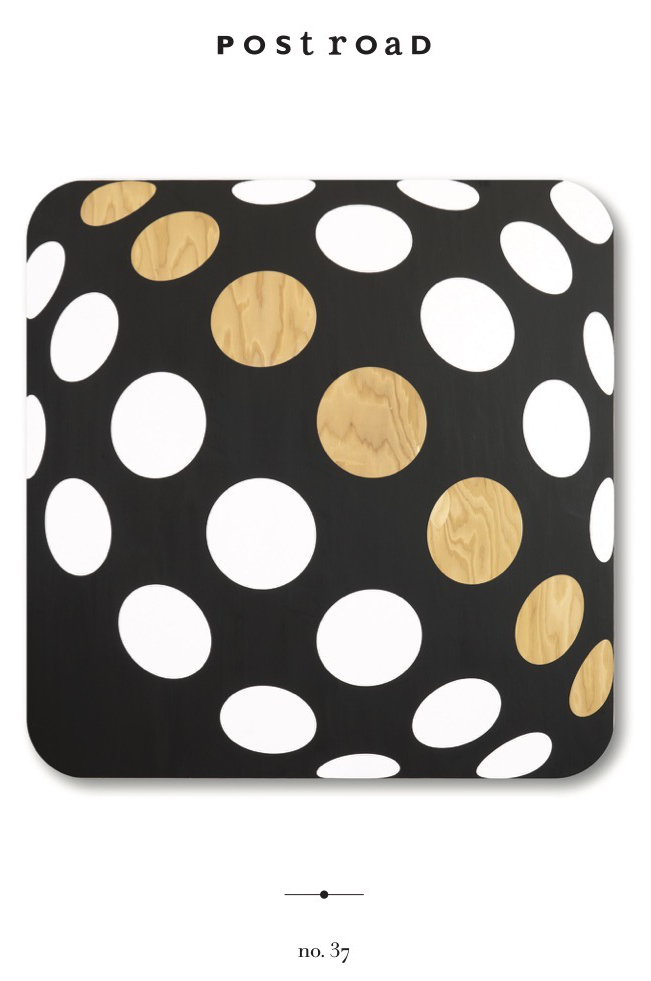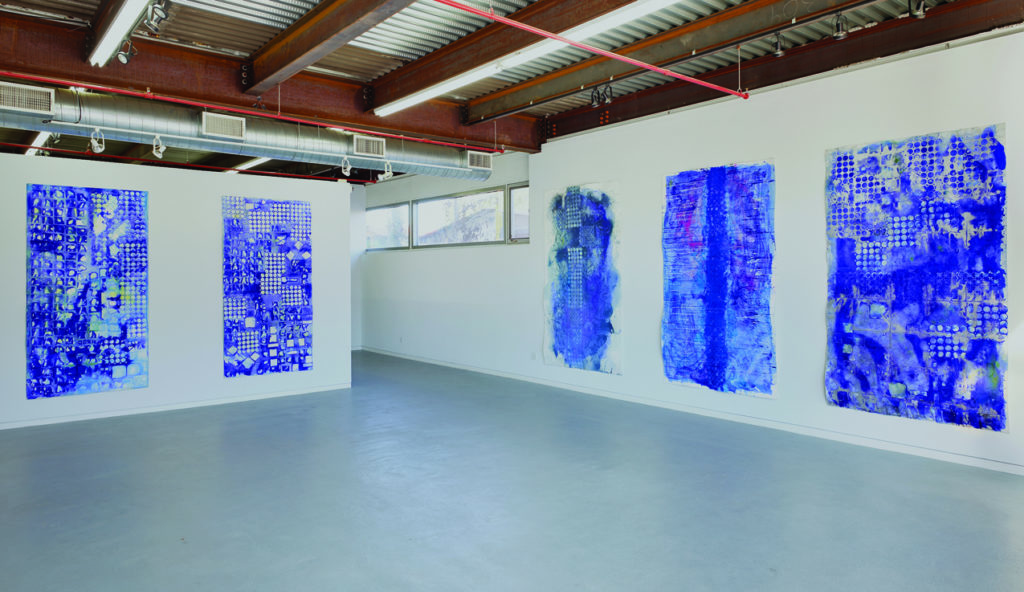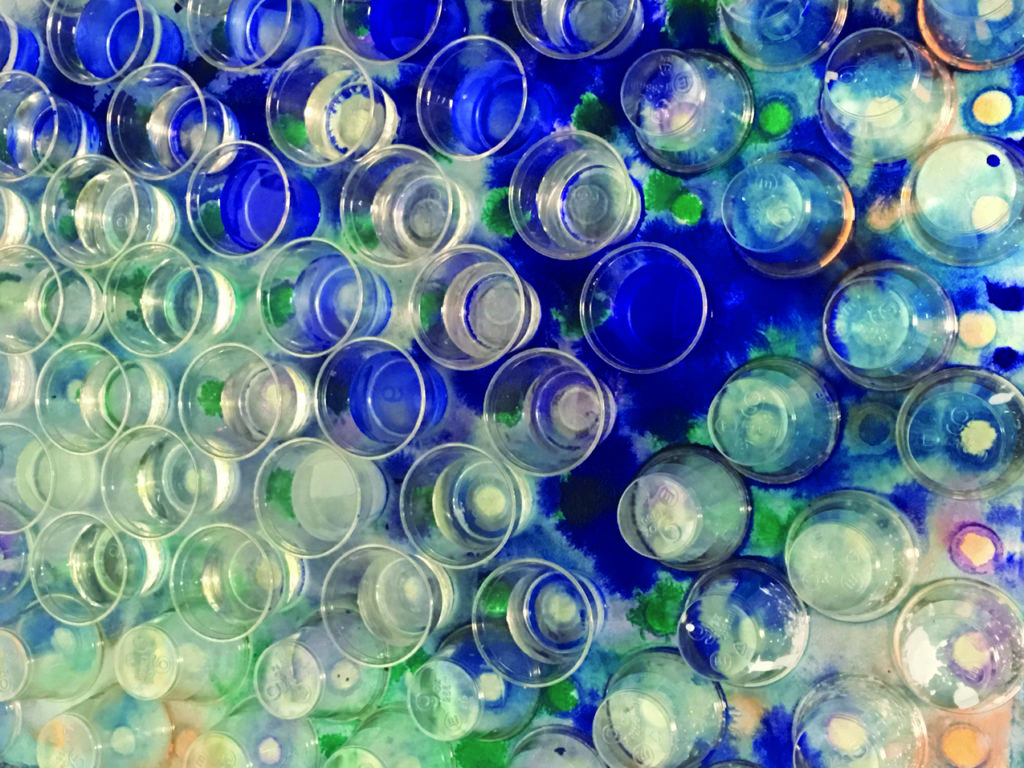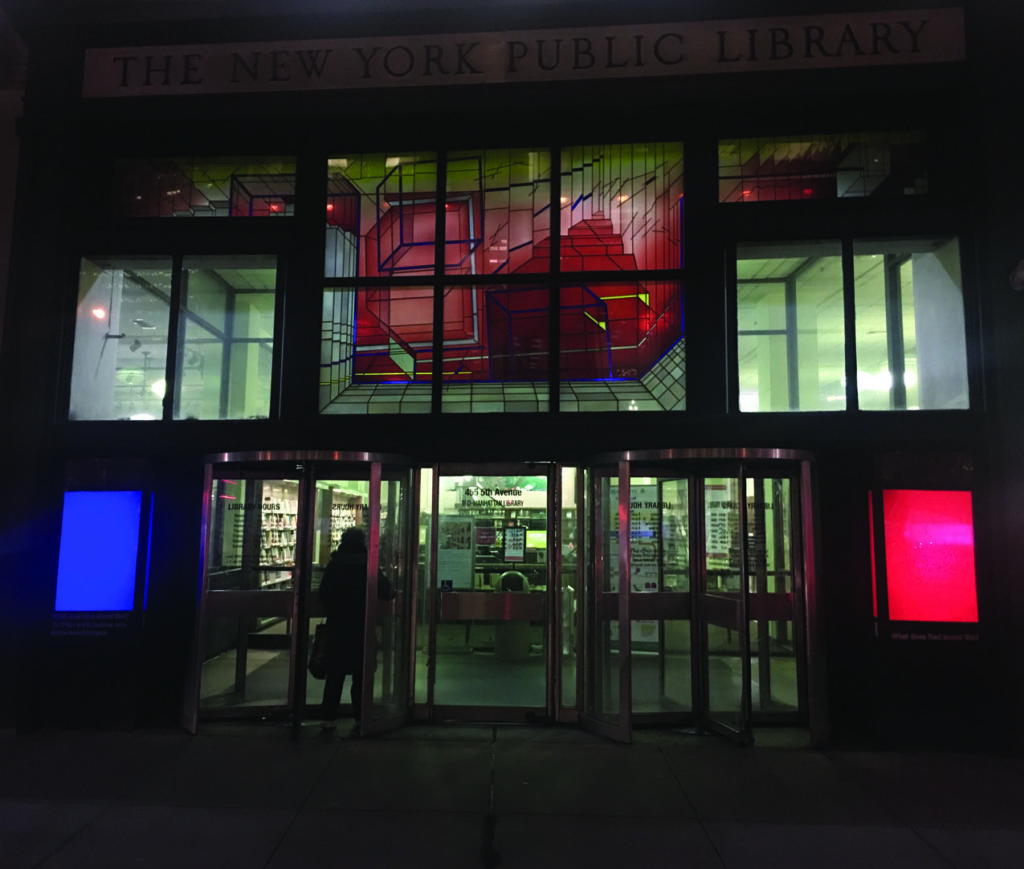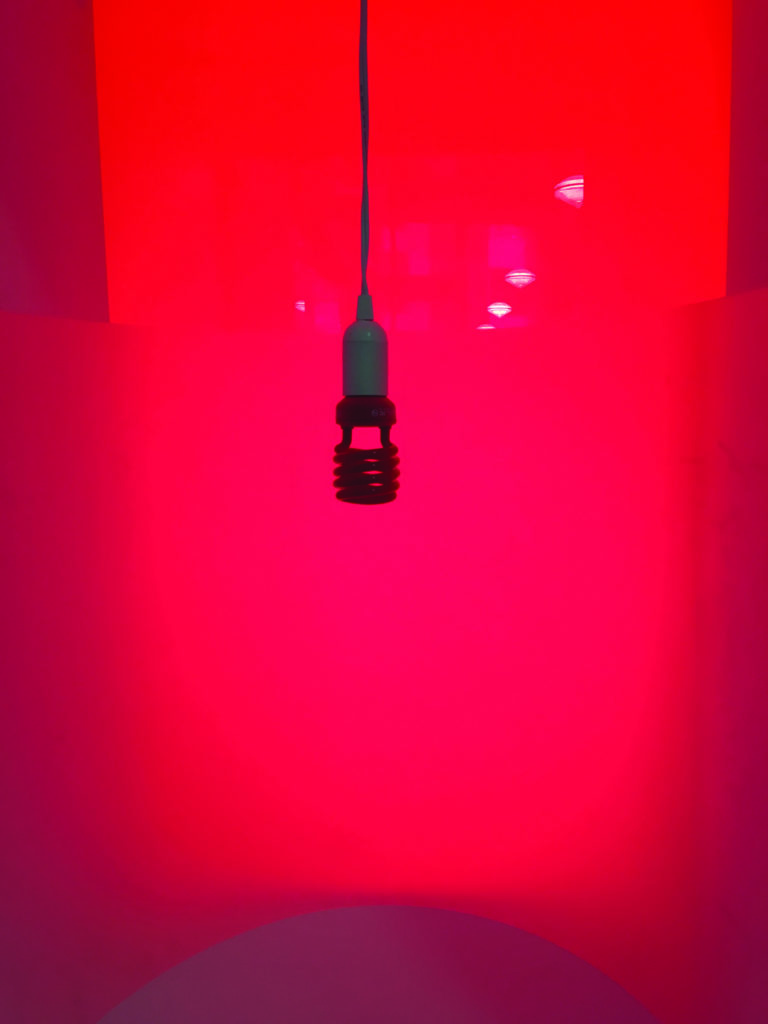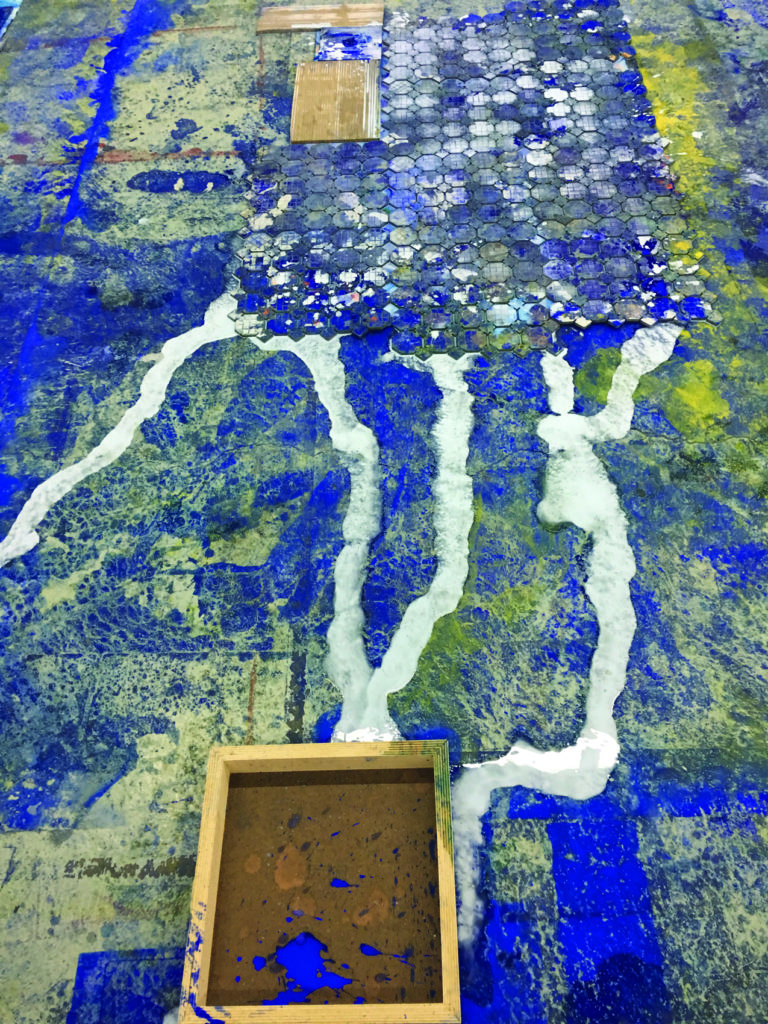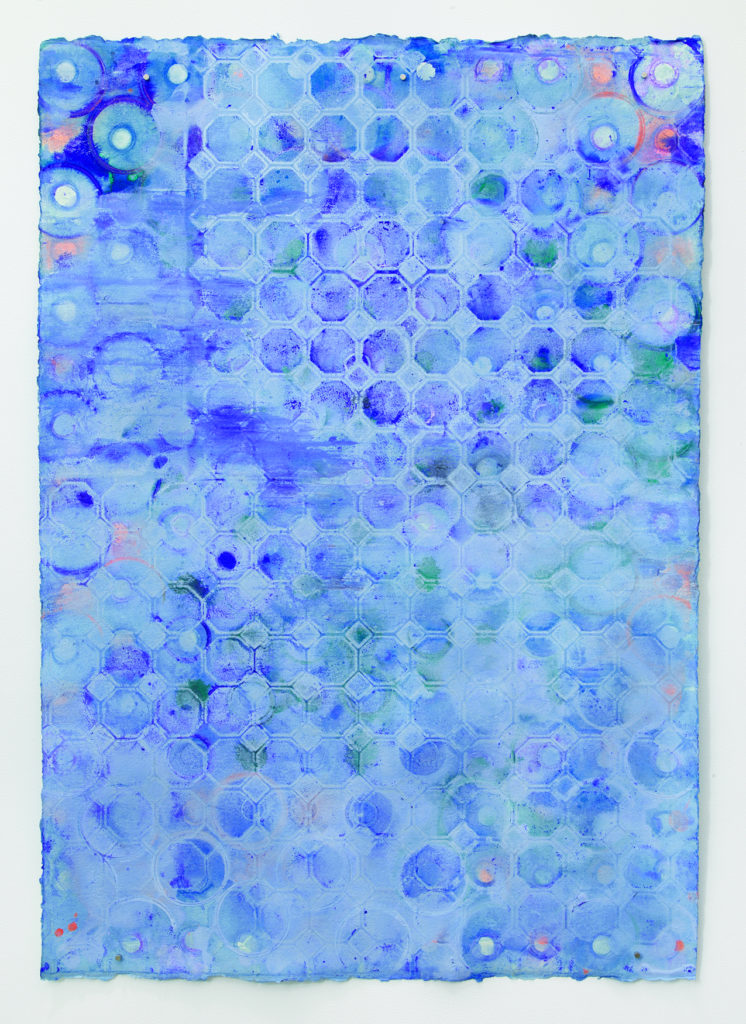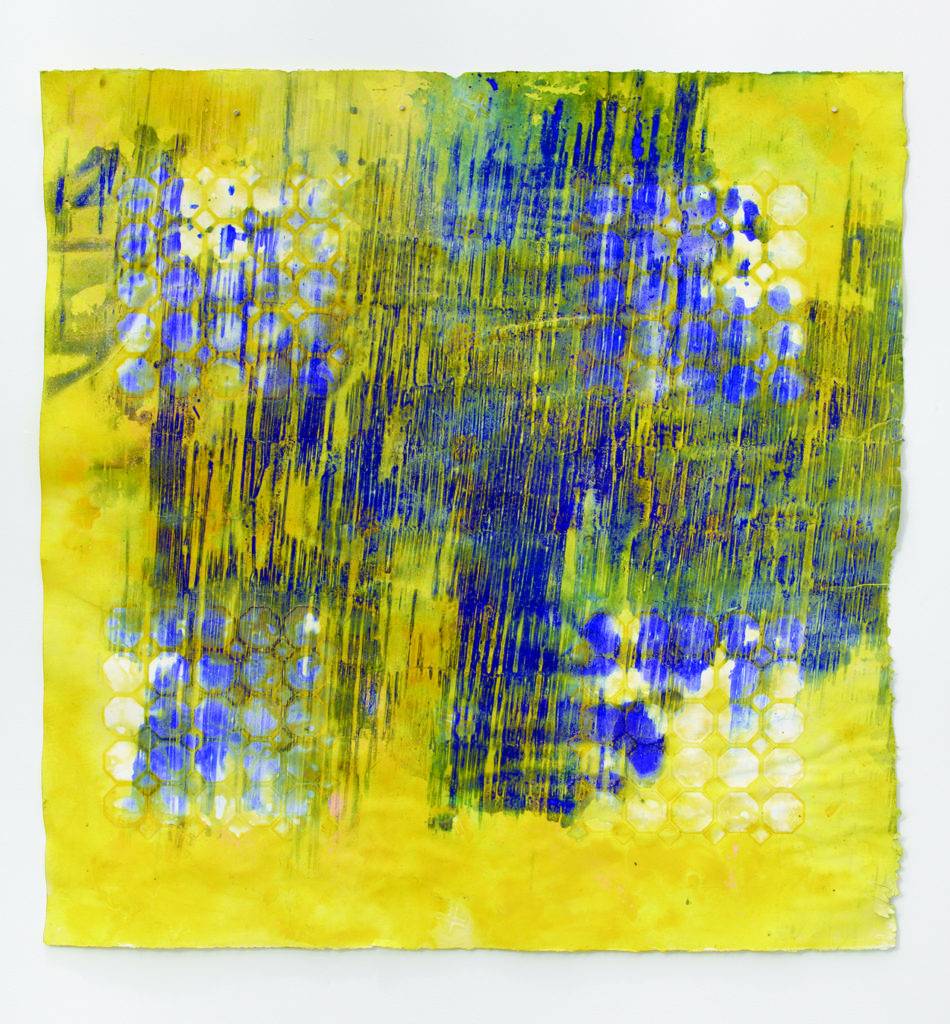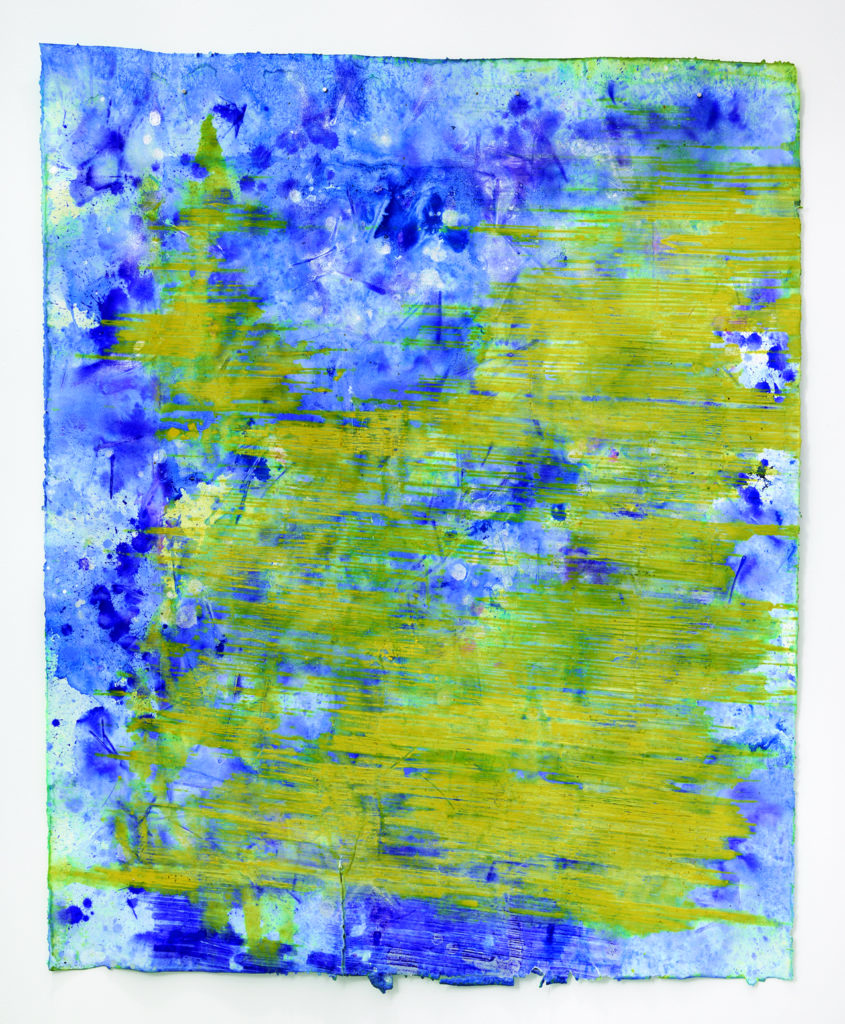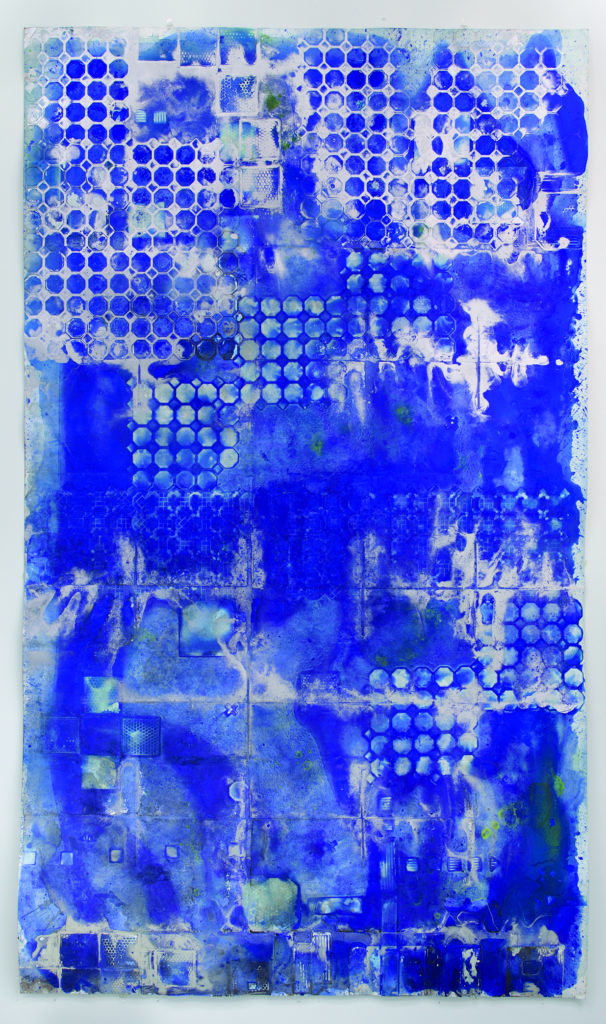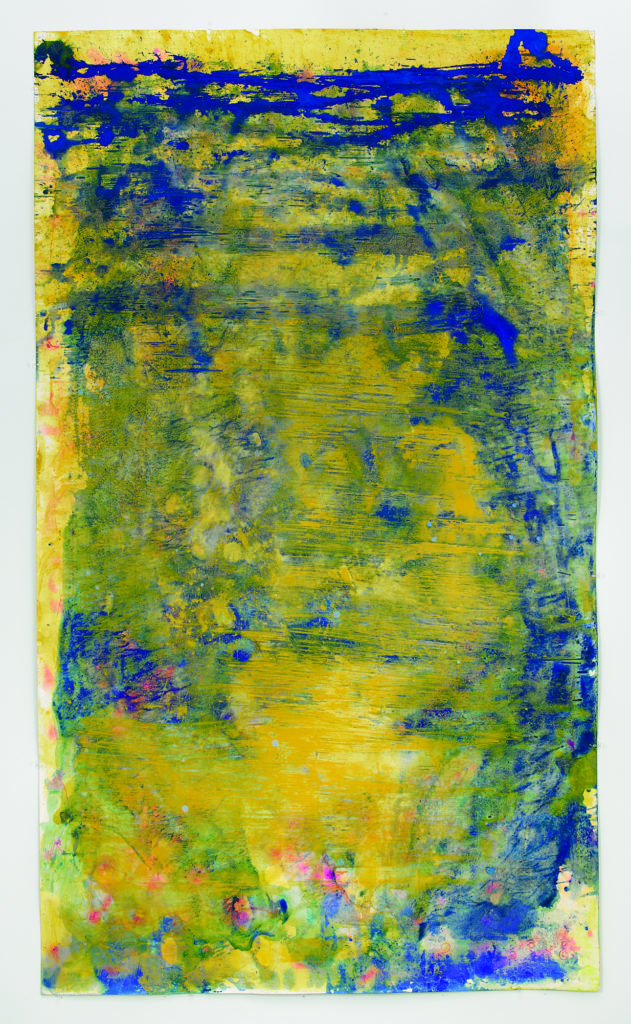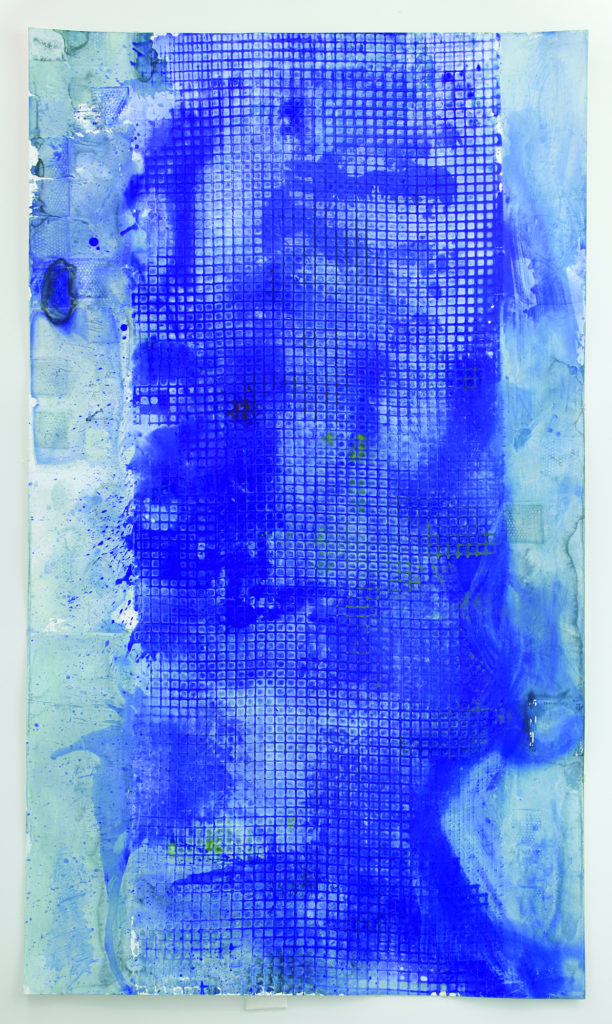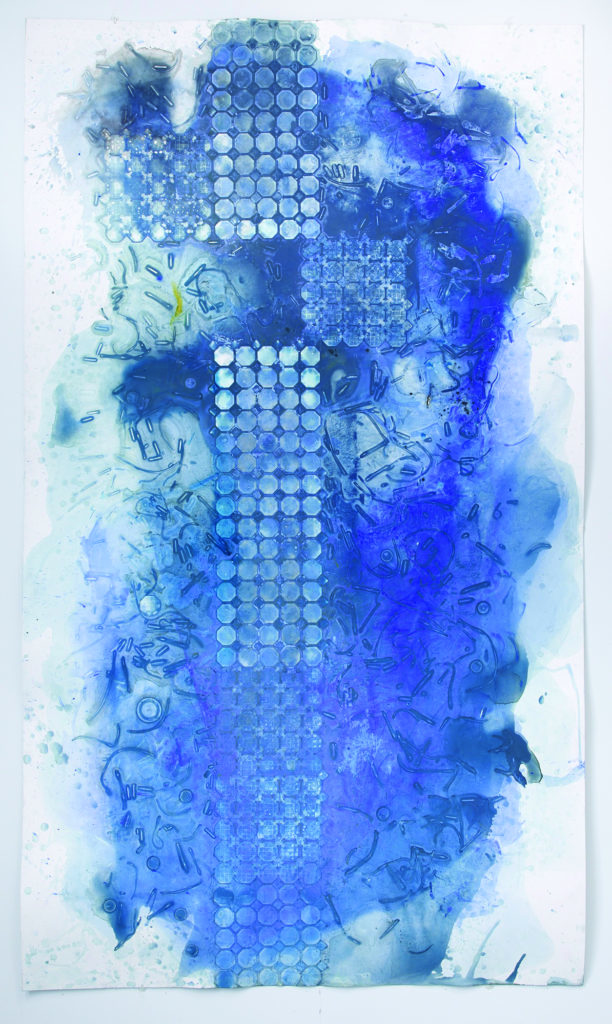That My Mom Did to Him
Cole Phillips
I was reroofing a shed in the backyard of my dad’s house because he was too old to do it himself. He’s not all that old but he’s had problems his whole life that have made him seem older than he is. He’s stubborn, and so he was helping me in ways that he was able.
I was there in the first place because it was November, and my dad needed to get this done before the snow. He had started it over the summer, had ripped out about half of the roof before he got hit with a vertigo spell and had to get down. But he couldn’t get down, I guess. My sister told me he was trying to get down but he was too afraid to go down the ladder. He thought he’d fall. So he was up there for sixteen hours until the fire department came and helped him off of the nine-foot shed.
I was pulling up roofing nails that had been in there for longer than any of us could remember when my dad finally came out. I’d had specific orders from my sister to not let him get up on the roof. When he first came out, though, he made it very clear that he wasn’t planning on getting on the roof. He said, I can’t get up there, have you got it?
I said, Yes, I’ve got it.
Have you talked to your mother recently?
No, not in a couple of months.
I was sort of dreading going home to get the roof done because, as much as I care about my dad, I’m convinced we’ve had every conversation the two of us could have. I went out with him for lunch over the summer, and I remember the silence between us in the car. But I knew he was too stubborn to just let me go out and do the roof myself. I was some parts excited about the prospect of coming down to do the roof because it would get me out of my apartment for a little while.
He said, How is Sarah? How are you two doing?
I was pulling up the last in a row of nails along the felt that I’d have to rip up. My fingers were pink and cracked-dry. There was a film of dust on them and they were scraped up where I had dragged them along the shingles.
I looked down at my dad. His eyes were so filled with water that I could see the reflections of the trees that looked like hands coming out of the ground in them. It was overcast and his colors were muted.
I said, Sarah’s okay.
Do you want me to come up there? Because I can get up there if you need me to.
I said, Did you ever feel like you were happier when you weren’t with Mom?
All right, I’m coming up, he said. You’re doing this all wrong.
Jesus Christ, I said. Stay where you are, old man.
I started ripping up the felt but I couldn’t even feel my fingers.
I looked down through the frame of the roof as the felt came up. The shed was almost completely full of the miscellaneous things of my mom’s that used to be in the garage. I’d had no idea there was anything in the shed. It had always been more or less empty. My only real memories of it from when I was a kid were of its mice.
I looked down at my dad. He was unclear because the cold was hard on my face and on my eyes. I wiped my eyes, my hands dirty and coarse. My face was numb and like rubber.
I said, Dad, what is all this?
It’s all Mom’s.
I had been on my knees and then I let myself fall backwards so that I was sitting. I sat with my arms extended out and held up by my knees.
I looked away from my dad and the house—in the other direction out toward this marsh that his house is on. He owns a ton of land, all pale, muted yellow now. The trees arched up over the property trying to scratch at the sky. I was breathing in and out, clouds in front of my face.
When I was a kid around this time of year we’d still have the Halloween decorations out. My younger brother used to decorate the whole property and my parents would let him turn our yard into a haunted tour and invite the people on our street. No one would ever come. He would ask for Halloween decorations at Christmas so that the year after he’d be able to make his displays bigger and better. He’d sit out there all night in costume waiting while no one came. He’d skip trick-or-treating and everything.
I’m not really sure where his things ended up. When I first met Sarah I wanted to show her, but I couldn’t find any of it. She never believed me about how much there was. There were bits and pieces here and there now: orange crepe ribbons, black plastic spiders, and a broken fog machine. I could see, up on the roof, small wooden gravestones out along the tree line that were faded and degrading.
I said, Dad, what’d you ever do with Michael’s old Halloween stuff?
He was not looking at me and was not saying anything at all. The wind was pushing his wispy hair left and then right, it was so light and thin.
He said, How are you and Sarah doing?
Sarah’s been a little down lately, actually.
That’s too bad.
I told him she’d had her position cut at work, and I said, I know it’s selfish, but it’s been hard for me. She’s unhappy and all.
He said, Are you still going through your depression stuff? And I said, I think we all are, Dad.
He doesn’t mean to be insensitive when he talks about temperamental things—he just doesn’t know any better. My family is sort of selfish. No one thinks about how the things they say will affect others. My mom’s the worst—I still tell Sarah all the time.
I asked my dad to hand me the roll of felt on the ground that I needed to lay over the frame of the roof. He tried to hand it up to me, but I couldn’t quite reach and he couldn’t quite reach, so he did take a few steps up the ladder. He was uncomfortable on it and his arms were shaking as he held up the felt.
I said, Be careful.
He said, Of what? There’s nothing to be careful of—this shit’s light as hell.
He did get it to me but he landed awkwardly coming off of the ladder. He said, Jesus Christ.
I said, You know, I’m worried about you.
Worry about your mother—I’m fine.
How can you still be worried about her?
Sarah had asked me a few nights earlier how long my parents had been divorced and I told her seven years. And she asked with this tone that seemed presumptuous. At least it felt that way to me. Sarah and I come from pretty different backgrounds. She doesn’t always understand or act very understanding.
He said, Well, Jesus Christ, I have to be. And he said, She’s taking all of my money. And he said, Hang onto that Sarah, she’s a good kid.
I said, I guess so, and I rolled out the felt.
I could hear him clearing his throat time and again. He wouldn’t look at me.
I said, Do you want to know something, Sarah’s been reminding me of Mom lately. I told him I’d been resenting her for every little thing. I said, Sometimes I feel terrible about it but sometimes I don’t.
You need to take care of her.
Why?
Because you don’t want to end up like me, that’s why.
I had the felt rolled out over the frame. I was balancing on the thin slats that were all I had to cross back and forth over the length of the roof. I took the roofing nails I had that were in a small glass jar with a faded label beside me. I was nailing them in and hoping I wouldn’t hit my fingers because I could hardly feel them in the first place. My hair was blowing all over, and I could see the burning tip of my nose when I focused from the inner corners of my eyes.
I said, It wouldn’t be so bad to be you, you know. I told him that she screwed it up, not him.
He said nothing but he cleared his throat again.
I started hitting nails in more quickly. I drew the collar of my coat up hoping it would keep me warmer. It was getting darker.
I said, She did terrible things, Dad. It’s okay to blame her.
He said, She does a lot for us.
Then where is she?
All right, he said, I’m coming up because you don’t know what you’re doing with those nails.
He grabbed both sides of the ladder and planted his feet heavily each time. It creaked and rocked.
I said, Get down, you’re gonna get stuck up here.
I’m coming up before you ruin the whole roof.
I started hammering very quickly. I thought if I could get all of the nails in before he got to the top of the ladder then he’d just go back down. But I saw his stubbornness, and it made me think about Sarah, because I’d be lying if I said it didn’t. I’d be lying if I said I wasn’t worried that Sarah would’ve done the same thing to me that my mom did to him.
I was crawling on hand and foot to the last row of nails and I looked back and saw his hands grab onto the edge of the frame.
I said, Are you insane? You’re going to fall through.
He said, At least if I die I won’t have to see how bad you’ve fucked up my roof.
Did she throw away Michael’s Halloween stuff, Dad?
No.
Did you let her throw away his shit, Dad?
It had to go.
I stood up on the roof and turned to him. I was struggling across the length of it over to him, trying to stay balanced on the slim bits of the frame underneath the felt. He was standing on the top rung of the ladder, trying to get the courage to step up onto the roof.
I said, How could you do that?
What, did you want a bunch of pumpkins all over the house for the rest of our lives?
I said, She made you. I said, She made you do it.
No, she didn’t.
Yes, she did, and Sarah’s going to do the same thing to me if I’m not careful, isn’t she?
He was getting a little emotional and between that and his trying to get onto the roof, the ladder was swaying on and off of the building.
Hold onto her, he said, she’s a good kid.
I’m not sure I should take your advice on women.
Your mother needs us.
I said, Do you remember when she left us, do you remember? And then the ladder fell backwards and a rung grabbed his ankle and took him to the ground.
I saw him moving around and I knew he was OK. He was cursing and flailing, but he was OK. I was sure he wasn’t strong enough to push off the ladder.
I said, Hang on, let me get down.
I’m fine, finish the roof.
You can’t get the ladder off.
I can get the ladder off, I can move the ladder. I’m in control of it.
He said, Don’t lose your damn girlfriend because you’re like me.
I sat on the edge of the roof and I watched him struggle under the ladder. His breathing was heavier than I’d heard it in a long time, but he got it off. He just lay on the lawn for a little bit looking up at the sky, breathing heavily. I looked back out away from the house and I looked at the grass that hadn’t been mown but was too cold to keep growing by itself. I looked at the trees and the marsh and the tiny smudge of sun behind the gray pane of sky that wouldn’t let it through.
He said, Do you remember when she left?
And I said, Yes.
Well, I do, too.
Cole Phillips is a writer and English educator from coastal Maine. He is currently an MFA candidate at New England College. He is the fiction editor for The Henniker Review.

